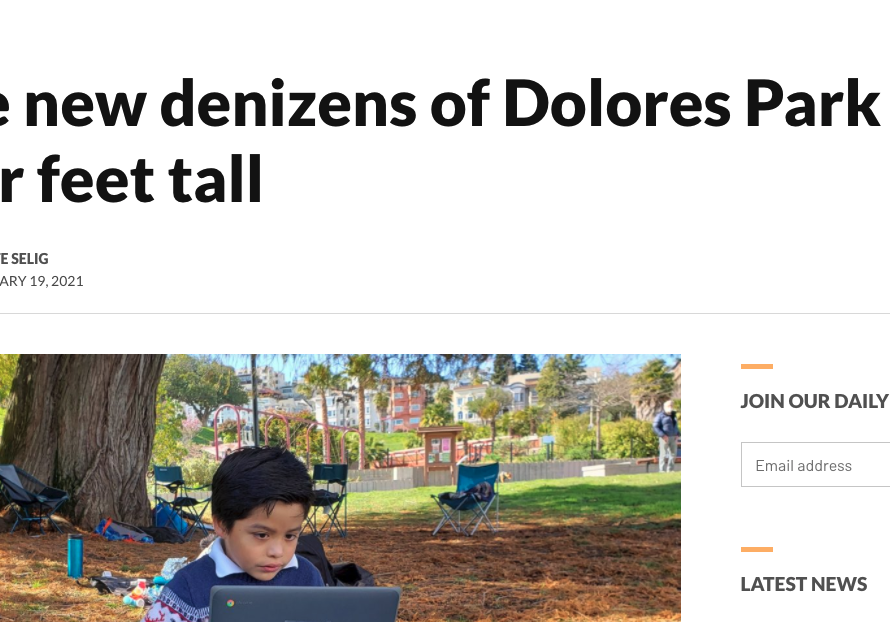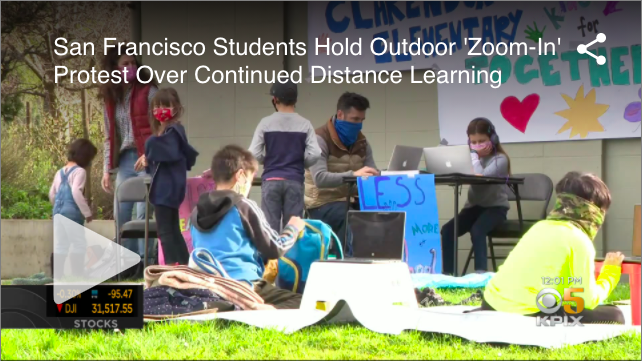San Francisco Chronicle: Open Forum, February 15, 2022
It’s finally over.
San Francisco Board of Education members Alison Collins, Gabriela López and Faauuga Moliga have been voted out in a recall — voters made it clear that the school board failed its 50,000 students when kids needed them the most. This was no small feat, particularly for a city where voters pay little attention to our public school system and are generally averse to recalls; the last attempt to remove a sitting elected official in this city was decades ago.
In the past, public school parents had little impact on school board elections, even for an office that’s so important to the well-being of their own children. That’s largely because San Francisco not only has the lowest per capita population of children of any major city, it also has the among the highest percentage of parents who choose private schools for their kids. This combination meant that public school parents didn’t have the numbers to make an impact on school board elections, which increasingly became used less as a home for experienced education experts and more as a launching pad for aspiring career politicians.
But not this time.
Public school parents like me started to feel hopeless after witnessing our children struggle with distance learning day in and day out. We saw their isolation lead to higher rates of anxiety, depression, suicidal ideation — all while very little learning was happening. We begged our leaders to take this issue more seriously and devote more resources and attention so students can spend more time learning in a classroom than a computer screen. And, at first, we were ignored.
So, what changed?
It turned out that parents, and voters sympathetic to parents, were a sleeping giant, awakened by a governing body that failed to support its constituents — our city’s public school children — during a crisis. San Francisco deserves praise for having the lowest COVID death rate of any major city and being a national leader with high rates of vaccination among its citizens. However, when it came to our kids, San Francisco was led by fear, more than science.
San Francisco’s public schools were the last to reopen among major urban district across the country despite the low risk of COVID to young children. As distraught parents started calling into school board meetings, they were often met with contempt and derision, and found members more focused on abstract political battles than on reopening classrooms.
Parents like me were furious and despondent. Until we found each other.
We started connecting with each other online through parent forums, and soon we were organizing public comments at school board and Board of Supervisors meetings. We organized outdoor demonstrations that brought attention to the dire circumstances kids faced in trying to learn through the screen. We went from being isolated and powerless to having a real impact.
So, what happens now that the recall is over? Will parents be able to maintain this collective voice?
We certainly need to try. Our kids’ schools are still in crisis and the district has what feels like an impossibly steep hill to climb just to get back to the pre-pandemic status quo. The new school board will need to turn around a $125 million structural budget deficit to avoid takeover by the state. It will also need to hire a new superintendent to replace Vincent Matthews, who will retire on June 30. This person will not only need to navigate the precarious budgetary situation, but simultaneously boost achievement for all students, particularly our most vulnerable. This will demand addressing the pandemic’s impacts on our schools, assessing the learning recovery needs of our children and moving toward a system that is better than what we had before.
The new board will also need to commit to a reset in governance style. Effective board members work collaboratively with each other and the superintendent, putting the needs of students above everything else. It hasn’t been that way in San Francisco for years, with commissioners (including some of whom who remain on the board) preferring to chase headlines and waste staff time with personal pet projects.
Parents and caregivers will be essential to making sure this transformation happens in a student-centered way. We gained a voice in our schools, and we should not let it go. We must remain organized and become a permanent fixture in the city. That means staying connected and continuing to engage in school board meetings. We need to keep sharing our stories, growing our community, fighting for real educational equity and, if necessary, taking action through rallies and demonstrations.
These are the things that will ensure that never again will we see such failed leaders making decisions that deeply impact our kids.
Parents are stretched thin and can be hard to organize. But we now have proof of what can happen when we do. For the sake of our city’s children, we must continue to show up and amplify each other’s voices.
The recall is over. Now we need the adults in the room to shift their focus to what’s best for our students. Parents should celebrate our victory, but we cannot rest. The only way forward is together.
Meredith W. Dodson is a public school parent and executive director of San Francisco Parent Coalition, an advocacy organization that centers the needs of children and youth in public schools by bringing together a diverse network of parents and caregivers to advocate for a thriving, equitable school system.

